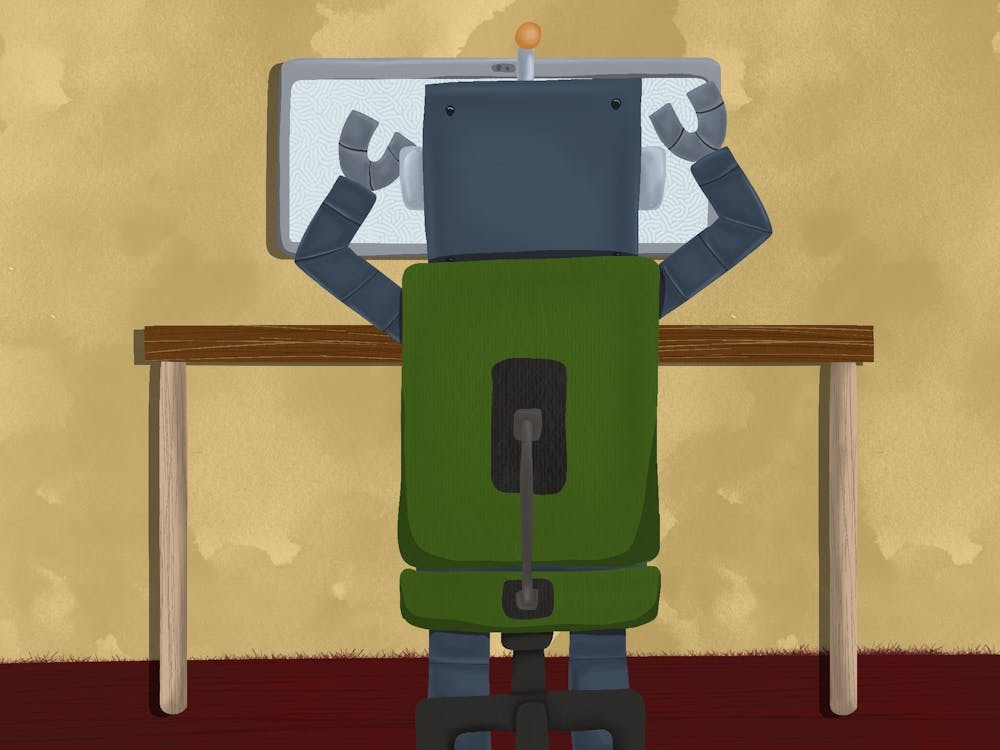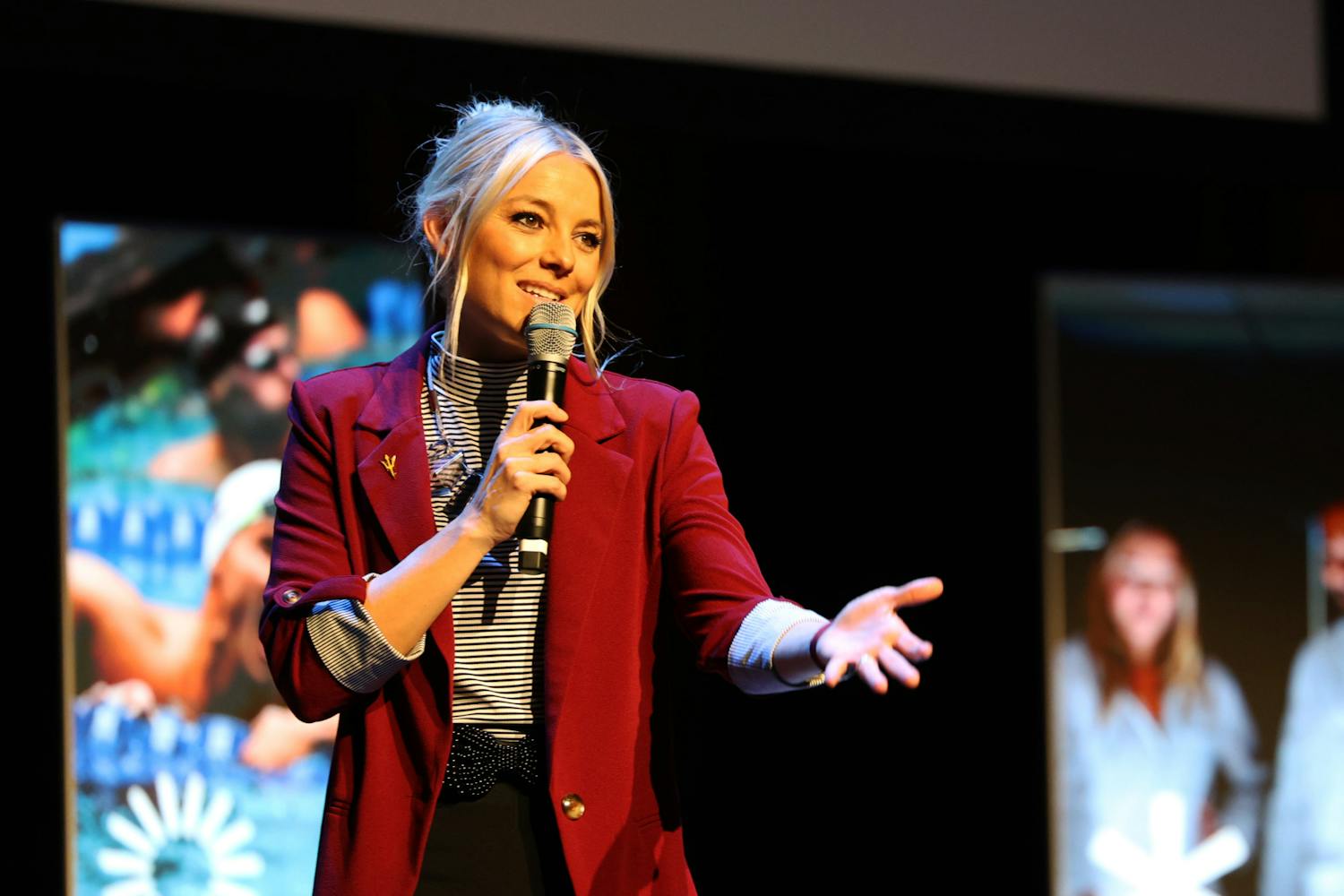University President Michael Crow emphasized the need for higher education institutions to embrace artificial intelligence in a forum hosted by The Washington Post Thursday.
He said colleges need to transform its learning models in order to equip students for a technologically advancing workplace.
"We still have largely a 19th, early 20th century model of a rigid structured, highly industrialized system interacting in certain kinds of ways," Crow said. "We’re not changing quickly enough to prepare the broader population for the kinds of work that lies ahead."
Crow was joined by Rep. Ted Lieu, D-Calif., a member of the bipartisan Congressional AI Caucus, and Slack’s Senior Vice President Christina Janzer in a series of conversations titled, "How policymakers, businesses and educators are adapting to the changing workplace." The event was streamed on The Washington Post Live.
The implementation of AI into education has been happening for years, Crow said, and it was used to revitalize ASU's engineering program.
Through the use of AI technology, the University changed the department's design and replaced the way that gateway classes to engineering, like calculus and other math courses, were taught. After almost 12 years the engineering program has a 90% retention rate and around 32,000 students, according to Crow. Before the changes, almost 69% of engineering students did not get past their freshman year, he added.
"A few years ago, we had 6,000 students ... who were pursuing engineering degrees in a 'weed-out culture,' where there was an annihilation of first- and second-semester engineering students," Crow said. "Since then, we've changed everything."
Generative AI models, like ChatGPT, have presented practical and ethical dilemmas for students and educators alike, but Crow said it is up to the University and professors to adapt to the new realities of education.
"It's just another tool. The thing that we’ve learned more than anything is that it's time for everyone to up their game," Crow said. "It's not about the learner, it's about everyone, including the old geezers like me. The geezers have got to figure out how we are going to understand and advance these AI systems."
ASU's current policy leaves the limitations of generative AI use in the classroom up to faculty members. Generative AI in writing is still considered plagiarism and a violation of the ASU Academic Integrity Policy.
Subbarao Kambhampati, a professor at ASU’s School of Computing and Augmented Intelligence, said generative AI will become and has been a common tool for students across all areas of study.
"You can think of it as basically a text calculator. When the calculator was invented, a whole bunch of people were extremely worried that kids will not know what numbers are anymore," Kambhampati said. "The calculator has not ended civilization."
Kambhampati said students are bound to use AI to write essays and do their work, but it is just an enhancement of strategies students have used to cut corners in the past.
"Some students pay their tutors to write their essays. They say, 'Here's 20 bucks, write me an English essay,'" Kambhampati said. "I would say it's democratizing cheating. Previously, only the rich could cheat. Now, anybody can."
However, as with other cheating methods, it's up to the student to decide whether to use it or not and maintain the authenticity of their learning, Kambhampati said.
"Integrity is knowing that you can cheat but choosing not to," Kambhampati said. "You should know that you can cheat, but you choose not to because of the contract we have that requires not policing, but an original, academic honor code."
While AI can pose threats to academic integrity, Crow said it is more powerful as tool to make education more personalized and accessible.
"We need to rethink how fast you can learn, how you can learn, to individualize learning," Crow said. "What you want is tools that literally enable anyone to go in any direction they want to go."
Edited by Alysa Horton, Alexis Waiss and Caera Learmonth.
Reach the reporter at pjhogan2@asu.edu and follow @PhineasHogan on X.
Like The State Press on Facebook and follow @statepress on X.




